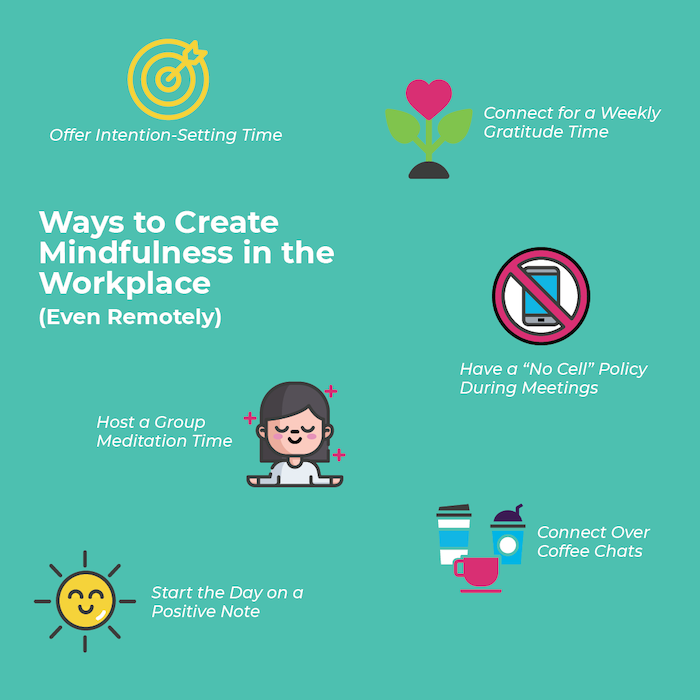The Power of Mindfulness in the Workplace
In today's fast-paced world, the workplace can often feel like a whirlwind of deadlines, meetings, and constant distractions. In such an environment, it's easy to become overwhelmed and stressed, leading to decreased productivity and well-being. However, amidst the chaos, there exists a powerful antidote: mindfulness. By cultivating a practice of mindfulness in the workplace, individuals and organizations can unlock a multitude of benefits, from enhanced focus and creativity to improved emotional resilience and overall job satisfaction.
What is Mindfulness?
At its core, mindfulness is the practice of being present and fully engaged in the moment, without judgment. It involves paying attention to our thoughts, feelings, and sensations with curiosity and kindness, rather than getting caught up in autopilot or reacting impulsively to stressors. Mindfulness draws from ancient contemplative traditions, but its applications in modern contexts, including the workplace, have garnered increasing attention in recent years.
Benefits of Mindfulness in the Workplace
Improved Focus and Concentration: By training our minds to focus on the present moment, mindfulness helps us cut through the mental clutter and hone our attention on the task at hand. This heightened focus can lead to increased productivity and better decision-making in the workplace.
Reduced Stress and Anxiety: Mindfulness practices, such as deep breathing exercises and meditation, have been shown to reduce levels of stress hormones and promote relaxation. As a result, employees who practice mindfulness are better equipped to manage workplace stressors and maintain a sense of calm amidst chaos.
Enhanced Creativity and Innovation: By quieting the noise of our busy minds, mindfulness creates space for new ideas and insights to emerge. When we approach challenges with a clear and open mind, we are more likely to think creatively and find innovative solutions to problems.
Improved Emotional Intelligence: Mindfulness cultivates self-awareness and empathy, two key components of emotional intelligence. By tuning into our own emotions and those of others, we can navigate workplace relationships more skillfully, resolve conflicts more effectively, and foster a culture of collaboration and mutual respect.
Greater Resilience and Well-being: Regular mindfulness practice has been linked to greater resilience in the face of adversity and improved overall well-being. By developing a deeper awareness of our thoughts and emotions, we can respond to challenges with greater clarity and equanimity, rather than being overwhelmed by them.
Implementing Mindfulness in the Workplace
Integrating mindfulness into the workplace doesn't have to be complicated. Here are some simple strategies that organizations can employ to foster a culture of mindfulness:
Offer Training and Workshops: Provide employees with opportunities to learn about mindfulness and its benefits through workshops, seminars, or online courses.
Create Dedicated Spaces: Designate quiet areas or meditation rooms where employees can retreat for moments of mindfulness and relaxation.
Encourage Mindful Practices: Encourage employees to incorporate mindfulness into their daily routines, whether it's through short meditation breaks, mindful walking, or deep breathing exercises.
Lead by Example: Cultivate mindfulness among leaders and managers, who can model the behavior for their teams and create a supportive environment for mindfulness practices to flourish.
Conclusion
In a world that often prizes multitasking and constant stimulation, the practice of mindfulness offers a powerful counterbalance. By bringing our attention back to the present moment, we can cultivate a deeper sense of focus, resilience, and well-being in the workplace. As organizations increasingly recognize the value of mindfulness, we can expect to see a shift towards more mindful workplaces that prioritize the holistic well-being of their employees.
So let us take a moment to pause, breathe, and cultivate mindfulness in our own lives and workplaces. In doing so, we can harness the transformative power of mindfulness to create a more balanced, productive, and fulfilling work environment for all.
Here are some books related to the topic of mindfulness in the workplace:
1. "Mindfulness at Work: How to Avoid Stress, Achieve More, and Enjoy Life!" by Stephen McKenzie and Craig Hassed
2. "Search Inside Yourself: The Unexpected Path to Achieving Success, Happiness (and World Peace)" by Chade-Meng Tan
3. "The Mindful Workplace: Developing Resilient Individuals and Resonant Organizations with MBSR" by Michael Chaskalson
4. "The Happiness Advantage: How a Positive Brain Fuels Success in Work and Life" by Shawn Achor
5. "Mindful Work: How Meditation Is Changing Business from the Inside Out" by David Gelles
6. "The Joy of Leadership: How Positive Psychology Can Maximize Your Impact (and Make You Happier) in a Challenging Wo




Comments
Post a Comment